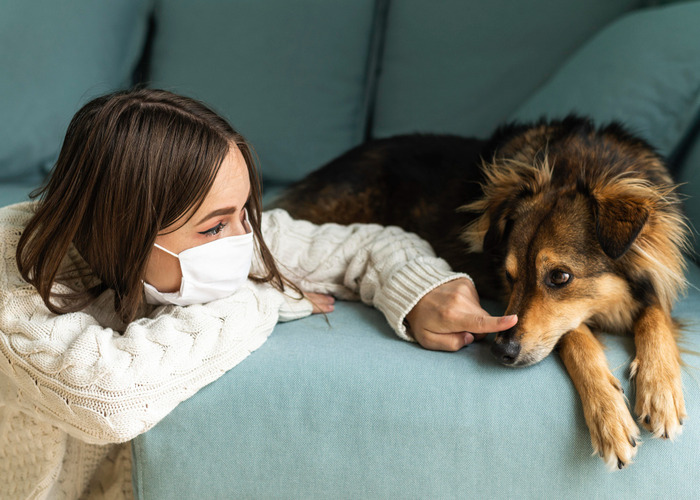At Pet Friendly Rehab in Southern California, we understand the importance of creating a healing environment that accommodates both individuals in recovery and their beloved pets. However, the presence of animals in rehabilitation settings can sometimes pose challenges, particularly for those with pet allergies or other animal-related issues. This article aims to provide a comprehensive guide on managing pet allergies and related concerns during rehabilitation, ensuring that the experience is comfortable and supportive for all.
Understanding Pet Allergies
What Are Pet Allergies?
Pet allergies are reactions triggered by proteins found in a pet’s skin cells, urine, or saliva. Common symptoms include sneezing, runny or stuffy nose, itchy or watery eyes, and skin reactions. Understanding the nature of pet allergies is crucial in a rehab setting where animals are part of the therapeutic process.
Common Allergens
- Dander: Tiny flakes of skin shed by pets.
- Saliva: Allergens can remain airborne after a pet licks itself.
- Urine: Proteins in urine can also cause allergic reactions.
Recognizing these allergens is the first step in managing allergies effectively at Pet Friendly Rehab.
Identifying Symptoms of Pet Allergies
Recognizing Allergic Reactions
Symptoms of pet allergies can vary significantly among individuals. Common signs include:
- Respiratory Issues: Coughing, wheezing, and shortness of breath.
- Skin Reactions: Rashes, hives, or eczema flare-ups.
- Eye Irritation: Red, itchy, or watery eyes.
It’s vital for individuals undergoing rehabilitation to communicate any allergic reactions promptly, allowing staff at Pet Friendly Rehab to implement appropriate measures.
Strategies for Managing Pet Allergies in Rehab
Pre-Admission Considerations
Health Assessment
Before admission to Pet Friendly Rehab, it is essential to conduct a thorough health assessment. This includes:
- Allergy Testing: Determining specific allergens can help tailor the environment to individual needs.
- Medical History Review: Understanding past reactions to pets can inform care strategies.
Room Arrangements and Cleaning Protocols
Pet-Free Zones
Creating designated pet-free zones within the facility can help manage exposure for those with allergies. This includes:
- Allergy-Friendly Rooms: Specific rooms should be maintained as pet-free to provide a safe space for individuals.
- Common Areas: Designating certain common areas where pets are not allowed can enhance comfort.
Regular Cleaning
Maintaining a clean environment is crucial in minimizing allergens. Implement the following cleaning protocols:
- Frequent Vacuuming: Use HEPA filters to capture pet dander and allergens effectively.
- Deep Cleaning: Regular deep cleaning of carpets, upholstery, and bedding to reduce allergen accumulation.
Air Quality Management
Air Purifiers
Installing HEPA air purifiers throughout the facility can significantly reduce airborne allergens. These devices capture pet dander and other irritants, improving air quality for everyone at Pet Friendly Rehab.
Ventilation
Ensuring proper ventilation in all areas can help disperse allergens and improve overall air quality. Regularly opening windows and using exhaust fans can aid in this process.
Education and Training for Staff
Allergy Awareness Training
Training staff at Pet Friendly Rehab to recognize and respond to allergy symptoms is vital. This includes:
- Recognizing Symptoms: Understanding the signs of allergic reactions to facilitate timely assistance.
- Emergency Protocols: Knowing how to respond in case of severe allergic reactions.
Communication with Clients
Fostering open communication between clients and staff about allergies and animal-related concerns is crucial. Regular check-ins can help ensure everyone’s needs are met.

Animal-Related Issues in Rehab
Addressing Phobias and Fears of Animals
Some individuals may have a fear of animals that can hinder their recovery. Addressing these concerns is essential for a positive experience at Pet Friendly Rehab.
Gradual Exposure Therapy
Implementing gradual exposure therapy can help clients confront their fears in a controlled and supportive environment. This includes:
- Observation: Allowing clients to observe animals from a distance.
- Supervised Interaction: Facilitating supervised interactions with animals as comfort levels increase.
Ensuring Animal Safety
Ensuring the safety of both clients and animals is a top priority at Pet Friendly Rehab. This includes:
- Behavioral Assessments: Regularly assessing the behavior of resident animals to prevent aggressive or anxious interactions.
- Supervision: Always supervising interactions between clients and pets to ensure safety for all parties involved.
Benefits of Animal-Assisted Therapy in Rehab
Emotional Support and Companionship
Animals can provide crucial emotional support during rehabilitation. Their presence can help reduce feelings of loneliness and anxiety, contributing to a more positive recovery experience.
Promoting Responsibility and Routine
Caring for animals can help instill a sense of responsibility and routine among clients at Pet Friendly Rehab. Engaging in animal care activities can promote:
- Structure: Establishing a daily routine can enhance feelings of stability.
- Purpose: Caring for a pet can provide a sense of purpose, which is particularly beneficial during recovery.
Enhancing Social Interactions
Animals can serve as social facilitators, encouraging interactions among clients and staff. This can lead to:
- Stronger Connections: Building relationships and support networks.
- Improved Communication: Enhancing communication skills through shared experiences.
FAQ: Managing Pet Allergies and Animal-Related Issues in Rehab
1. What are pet allergies?
Pet allergies are immune reactions to proteins found in a pet’s skin, saliva, or urine, causing symptoms like sneezing, itching, and respiratory issues.
2. How can I tell if I have a pet allergy?
Common signs include sneezing, runny or stuffy nose, itchy eyes, and skin rashes after exposure to pets. Consulting with a healthcare professional can provide a definitive diagnosis.
3. What should I do if I have a pet allergy during rehab?
Inform the staff at Pet Friendly Rehab immediately. They can implement measures such as creating pet-free zones and improving air quality to ensure your comfort.
4. Are there pet-free areas in Pet Friendly Rehab?
Yes, we designate specific pet-free zones within the facility to accommodate individuals with allergies.
5. How do you maintain cleanliness in a pet-friendly environment?
We follow strict cleaning protocols, including frequent vacuuming with HEPA filters and regular deep cleaning of all areas to minimize allergens.
6. Can I bring my pet if I have allergies?
If you have allergies, it is advisable to discuss this with our team. We can explore options to ensure your comfort while accommodating your pet’s needs.
7. What is animal-assisted therapy?
Animal-assisted therapy involves interactions with trained animals to provide emotional support, reduce anxiety, and enhance the rehabilitation experience.
8. How does Pet Friendly Rehab address animal-related fears?
We offer gradual exposure therapy, allowing clients to observe and gradually interact with animals in a controlled environment to help overcome fears.
9. What benefits do animals provide in a rehab setting?
Animals offer emotional support, companionship, and promote a sense of responsibility, helping to enhance social interactions and improve overall well-being during recovery.
10. How can I learn more about Pet Friendly Rehab’s services?
For more information about our services and how we manage pet allergies and animal-related issues, visit our website or contact us directly.
Conclusion
At Pet Friendly Rehab in Southern California, we prioritize the well-being of our clients and their pets. By understanding and managing pet allergies and animal-related issues, we create a supportive and healing environment. Through thorough assessments, effective cleaning protocols, education, and fostering open communication, we can ensure a comfortable experience for everyone involved.
If you or a loved one is considering rehabilitation and have concerns about pet allergies or animal-related issues, don’t hesitate to reach out to us at Pet Friendly Rehab. Together, we can create a path to recovery that embraces the healing power of animals while addressing individual needs.
For more information on our services, visit our website or contact us directly. Your journey to recovery starts here!



